Our favourite theatre productions of 2024, in Toronto and beyond
End-of-year lists are personal. When it comes to theatre, the question isn’t really what shows you liked most, but which ones left the strongest imprint, continuing to pinball around in your mind and heart even after the set is gone and the cast no longer recalls their lines.
That’s why Intermission is this year publishing one list each from theatre critics Karen Fricker and Liam Donovan. Below, find their picks in alphabetical order (with shows that made both lists kept separate), followed by a conversation about the selected productions that touches on topics including bilingualism, digital dramaturgies, women in conversation, and the power of communal experience.
Karen’s favourites
- Age Is a Feeling (Soulpepper Theatre)
- Big Stuff (Baram and Snieckus/Crow’s Theatre)
- Earworm (Nowadays Theatre/Crow’s Theatre)
- Goblin:Macbeth (Spontaneous Theatre/Tarragon Theatre)
- Infinite Life (Coal Mine Theatre)
- Interior Design (Tarragon Theatre)
- I Was Unbecoming Then (Next Stage Theatre Festival)
Liam’s favourites
- De Profundis: Oscar Wilde in Jail (Soulpepper Theatre)
- Girl’s Notes III (SummerWorks Performance Festival/Why Not Theatre)
- Honey I’m Home (Lester Trips/Factory Theatre)
- Roberto Zucco (Buddies in Bad Times Theatre)
- seven methods of killing kylie jenner (Obsidian Theatre/Crow’s Theatre)
- Wilma (RUTAS Festival)
- You, Hamlet (Toronto Fringe Festival)
Shared favourites
- Dana H. (Crow’s Theatre/Goodman Theatre/Center Theatre Group/Vineyard Theatre)
- MONKS (Toronto Fringe Festival)
- Salesman in China (Stratford Festival)
Liam Donovan (LD): We’re recording this Zoom chat on December 11, before we see any other publication’s end-of-year coverage, but I would expect to see Dana H. and Salesman in China on almost every list.
Karen Fricker (KF): I agree. What I found so remarkable about Dana H. was how the form informed the content and vice versa. The fact that Jordan Baker was lip syncing a recording of Dana Higgenbotham voicing her experience of abduction — we were watching a woman distanced from her own voice, literally divided. We were seeing what that experience did to Higgenbotham in terms of estrangement and fracture.
LD: Toronto audiences see a lot of solo shows, many of them rooted in autobiography, so it was disarming how playwright Lucas Hnath found such a different approach to both those forms in Dana H. The formal innovation was undeniable.
As for Salesman in China, which is coming to the National Arts Centre next month, I know I’ve sometimes had the experience of going to a surtitled show and being a little disappointed because it’s hard to keep your eyes on the action with the words hanging far above. But in Salesman in China, the subtitles move with the actors, right under their shoes — a seriously impressive technical feat.
KF: The thoroughness of the translation and subtitling was at a level I’d never seen before — the show was fully available to both Mandarin speakers and English speakers. The set was framed in a box so that there could be lower and upper subtitles; building those in literally framed the show.
What Salesman in China is to me is a thoroughly well-written play. At the core of the production is a script by Leanna Brodie 白仁耐 and Jovanni Sy 施崇梵 that has been in development for a long time and you feel that, in a good way.
LD: I appreciate the restraint of Sy’s production. There are a couple great images, but he gives them space, not overdoing it. And Alessandro Juliani’s sound design includes a lot of silence, trusting that the actors — especially the central duo of Tom McCamus and Adrian Pang 彭耀順 — know what they’re doing. Then, when bigger design moments do arrive, they land with a lot of weight.
KF: The second time I saw it, there were enough Mandarin speakers in the audience that the comedy act at the top of the second act that’s not translated into English got a lot of laughter. I loved the cultural specificity of that and that Brodie and Sy had the confidence not to translate it.
LD: Playwright Mercedes Isaza Clunie did a similar thing in her play Gringas, which had success at the Toronto and Hamilton fringe festivals this year — the final monologue was in untranslated Spanish. I found that choice effective, too, even as someone who doesn’t speak the language.
KF: That puts me in mind of Earworm, another show from earlier in 2024 that has really stuck with me, and which had alternating performances in English and Farsi, with corresponding surtitles. I went to see that production with three friends who were born and raised in Iran, and they were moved and shaken by the commentary that Mohammed Yaghoubi’s play makes about the regime and how it reaches beyond Iran itself — how the Islamic Republic affects and curtails people in Canada. Nowadays Theatre brought us something about an alarming situation far away that affects us here.
LD: I saw it in English, but then wanted to see one of the performances in Farsi and couldn’t get last-minute tickets because they kept selling out. It seemed clear that the production was resonating with the Iranian community.
KF: It’s proof that theatre in languages other than English and French can really reach an audience in Toronto. And that show, directed by Yaghoubi, is also memorable for a great lead performance by Aida Keykhaii. It was great to see that it toured to Vancouver this fall.
Both Dana H. and Earworm were presented by or produced in association with Crow’s Theatre — hats off to another year of amazing programming from Crow’s. Dana H. was that moment where they had to find spaces across town because the juggernaut that was Natasha, Pierre & The Great Comet of 1812 could not be stopped.
LD: Yeah, 2023-24 at Crow’s was pretty incredible — The Master Plan, Bad Roads, Comet, Earworm, seven methods of killing kylie jenner, and Dana H. all in the same season.
KF: Tell me about seven methods — it made your list, but I wasn’t able to see it.
LD: I mean, it’s curious that we have three Crow’s Studio Theatre shows between our lists. I always think of that space as a little bit awkward. It’s too wide, the walls are brick, and the risers aren’t the prettiest — it’s very scrappy, compared to the Guloein. But there’s been some daring programming there.
So Jasmine Lee-Jones’ seven methods is half-set in the Twitterverse, and its central characters mainly speak in Internet slang. And here it was directed very, very clearly by Jay Northcott, with super precise performances by Déjah Dixon-Green and Jasmine Case. Video designer Laura Warren and sound designer Maddie Bautista created a digital aesthetic that was both beautiful and a little frightening. And Nick Blais’ set had this giant fluffy bed in the centre of the stage that also seemed to be a trampoline. I’ve heard it said that you should be careful about putting beds in shows, because they can suck up energy. But here the performers had a lot of fun rolling around on the bed, which made the production’s physical language really unique.
Staying in the Crow’s Studio, do you want to speak on Big Stuff? I really liked it, too.
KF: Sure. It’s a very special show. Matt Baram and Naomi Snieckus are a married couple who are both skilled improvisers — they met at Second City. In the show they tell the story of their relationship and talk about their recent experiences of their parents’ death. This leads into a discussion of how they (and we) deal with possessions, in terms of what you keep and what you give away. It’s a really relational piece, directed and co-created by Kat Sandler, and the night I was there, it was very impressive how they got fantastically resonant stories out of the audience, but also kept that from running away from them.
LD: I agree, it felt like such a communal experience. I don’t know that the subject matter is something that I totally connect with on my own terms, so the audience participation aspect helped open it up for me. By the end, the crowd had bonded so much.
Big Stuff ends with an invitation for the audience to call out the name of someone they care about. A show on both our lists, MONKS at the Toronto Fringe, made a similar move.
KF: Yes, we didn’t agree on a huge amount on our lists but we did agree on this! MONKS was one of those Fringe hits that everyone was talking about in the lines for other shows and in their group chats: ‘Oh my God, get in, see this.’ Can you sum up what it was about the show that struck you?
LD: It seems there’s always a Fringe show in the Tarragon Solo Room that becomes impossible to score a ticket to! MONKS is a totally rambunctious, two-hander clown performance about monks messing around at a monastery while their abbot is away. It’s the one day a year they don’t have to engage in their mind-numbing job of counting lentils, and they use this free time to play with the audience. Most of the crowd gets cast as a different monk, and they make names out of our appearances, like ‘Brother Glasses,’ ‘Brother Satchel,’ or ‘Brother Athleisure.’ Much like Big Stuff, it almost felt like a community event — during a storm, we’re invited to shake branches and spray water at the actors, and there’s a scene where someone gets to come up and do something wacky with a donkey.
KF: The two performers, Veronica Hortiguela and Annie Luján, are very well-trained clowns, and that’s kind of hidden — it feels like a completely bonkers, out-of-control experience, but actually it’s very skilled what they’re doing in terms of making generous invitations to participate. The show was saying something about work and idleness and capitalism, but it wore any kind of messaging really lightly. I grabbed tickets and a friend with whom I share a sense of humor, and it absolutely delivered what I’d hoped it would, which is the invitation to laugh uncontrollably for an hour.
LD: It also played at the Crow’s Studio in October, as part of the Crow’s Cabaret series, and I heard they updated it for that setting in very fun ways, even bringing in a crow prop.
KF: Beyond MONKS, there are a lot of festival shows on our lists, especially yours.
LD: I always find festivals to be one of the most exciting times to be a theatre audience. Especially at an uncurated fest like Fringe, people can just put up whatever they want. And it’s rare for someone to do a show that they don’t believe in, because they’re probably not making that much money. So the work feels very passionate.
That was definitely the case with You, Hamlet, performed by Dopolavoro Teatrale at East End United church, an associative journey through a bunch of different ideas about Hamlet. We had so much Hamlet this year — did we need more? I would’ve said no, but this collective creation, directed by Daniele Bartolini, felt so intentional. You start out in a sort of funeral procession, and then by the halfway point things get super interactive. The sequence that stuck with me most was when we all ended up around a table with no performers in the room, and there was a paper with questions that sort of have to do with Hamlet — deep things to be talking about with strangers, like, ‘how do you imagine your death?’ This is a throughline I’m seeing with the shows on my list: many have a communal aspect.
KF: Do you want to talk about Girl’s Notes III? I was out of town for all of SummerWorks, so I missed it.
LD: I saw a lot at SummerWorks this year, and I had a nice time. Because of the festival’s focus on performance art, it feels like a solid entry point for audiences that don’t usually go to theatre, but might be more invested in the visual art world, for example.
Girl’s Notes is a wordless performance piece about Taiwanese artist Su Pin-Wen’s experience in lockdown [the performer plays a woman in the show, but uses he/they pronouns]. For me, it felt in dialogue with Chantal Akerman’s iconic film Jeanne Dielman, 23 quai du Commerce, 1080 Bruxelles. Akerman shines a light on the drudgery of housework, like meal prep — but Su spends the entire show cooking a rice-based meal in a state of total self-love. You’d think a pandemic play about what’s essentially a form of labour would be dark, but this one almost feels like a utopia in that it isn’t aimed at the audience at all. Su listens to music in headphones, not really allowing us to hear. He spends minutes hunched over his rice cooker to feel the sensation of the steam. And there’s even a scene that’s totally out of the light. At one point he also strips off his clothes, but in a very sort of absentminded, personal way.
KF: That’s so interesting, because you drew out this theme of communion and community as being something that draws most of your selections together. And this one, it sounds like almost the opposite, that it’s knowingly not privileging the audience.
LD: Exactly! But at the end of the show, after he bows, Su does allow the audience to come on stage and have a look at the finished meal. It’s a compassionate coda to a show that otherwise kinda prides itself on shutting the audience out.
Speaking of formally daring international solo shows, Wilma came to Aluna’s RUTAS Festival courtesy of Mexico’s Porta Teatro, and was performed in Spanish with English surtitles. It only ran for a weekend, but sort of went mini-viral on my social media feeds, and I do think it lived up to the hype.
Creator-performer Itzhel Razo tells the story of a girl who grows up shut off from her Maya heritage. She’s only allowed to learn Spanish in a city where schools are usually bilingual. So when an alert for hurricane Wilma is issued over the radio in Maya languages, she doesn’t understand, and is left stranded. Then come a bunch of incredibly visceral images. Razo ties herself in a curtain and runs around the stage, imitating the wind, before dousing herself in paint and jumping into a tank of onstage water. It’s one of those shows that reminds you how gloriously messy solo performance can be.
So, in terms of festivals, we’ve brushed on Fringe, SummerWorks, and RUTAS… and you have a Next Stage show, too.
KF: Yes, I Was Unbecoming Then. This was a new Canadian staging of a piece that’s been in development for a number of years by New York-based creators Lyndsey Bourne (book and lyrics), Sam Kaseta (music), and Ilana Khanin (direction). It made sense to me when I read that because the material is so smart and thoughtful — they’ve been cooking it for a while. It observes a group of young women in a North Vancouver high school who are in choir together, and you get a story about them as a community, as well as a couple of teachers that are very important to them.
It’s a depiction of that late adolescent moment, but really without cliches about that time. It takes those relationships, emotions, struggles, friendships, and loves very seriously. The staging was very stark, very low-budget, but so smart using what they had, just a couple of white rugs and a couple of stand lights. The performers would speak to each other or directly to the audience and would often move in sync. And this notion of them being on display brought a lot to the fore about that time of life, feeling like everyone’s looking at you — that’s what you want, but that’s also what you fear.
LD: I found it very impactful as well. And that was another one where I felt there was a real trust in the material, as well as a committed directorial approach.
KF: Around the same time, I saw Rosa Laborde’s Interior Design at Tarragon, directed by Kat Sandler. I saw it on opening night and it was a full house, and the show reached a peak of hilarity that was just so communal and fantastic.
It’s a play about four women who’ve been friends for a long time and who are now in their early forties. It’s about female friendship and it’s about what happens when actually some of those friendships break and why that might be. The play went in directions that I wasn’t expecting. It was also impeccably performed, a reminder of why Sara Farb is a jewel — a jewel amongst jewels, in that show.
LD: The night I went to Interior Design, which wasn’t opening, Goblin:Macbeth was running in the Mainspace and there was quite a buzz in the lobby. There’ve been a lot of dramas at Tarragon since the pandemic, but to see those two comedies playing at once, and connecting with audiences, was really cool. What did you love about Goblin:Macbeth?
KF: It’s just such a unique premise that’s clearly coming from a practice that Rebecca Northan and Bruce Horak have honed: Three goblins are going to put on Macbeth for you. Rebecca is widely respected in the national theatre community for unique practice and chops as a comic improviser, and it feels like the tide is rising for her in many ways.
The goblin masks are stunning — they genuinely hide the identity of the performer down to gender, in my experience. And the way you’re brought into that communal conceit is masterful comedy.
LD: 100 per cent. Yeah, for me it had a kind of defamiliarizing effect. Seeing goblins on stage reminded me just how constructed theatre actually is as a concept. And also how permanently avant-garde Shakespeare is! I’ll be curious to see Goblin:Oeudipus at Stratford next fall.
OK, since we’re talking remixed Brit lit: De Profundis, Gregory Prest (adaption/direction), Mike Ross (music), and Sarah Wilson (lyrics)’s musical adaptation of a lengthy love letter by Oscar Wilde. I saw it twice and it really worked for me both times. I was impressed how it managed to take us on a journey through so many different aesthetics, even though it’s basically all set in a prison. There was such a clear visual arc in Lorenzo Savoini’s design — we started in Oscar’s cell, but then we ended up in something like the Garden of Eden. And then even though the score mixed so many genres, going from electro-pop to Broadway, all of these explorations were tied together by a totally grounded performance by Damien Atkins.
You have a Soulpepper show on your list, too: Haley McGee’s Age Is a Feeling.
KF: McGee is a huge Canadian talent who now makes her home in the U.K., and this is another show that had an element of spontaneity and audience interaction. It really is an incredible feat of presence in that she performs certain parts of an overall script, but not all of it, on a per-performance basis, and then has to fill in the bits that we miss through little interstitial bits of text to allow audiences to follow the story.
The production follows a woman’s life from age 25 through to old age, and — now that I’m thinking about it — is another show that told a female story in a formally innovative and inviting way. I was there with an intergenerational group of Intermission women, and each of us thought the show was for us.
LD: Yeah, it’s been 16 months since I saw the Edinburgh Fringe staging of Age Is a Feeling, so I won’t try and comment beyond that the show is super strong. I will shout out one of my favorite things Intermission published this year, our review of this show by outgoing senior editor Aisling Murphy, to which you contributed prompts. I found that to be a very beautiful piece of theatre criticism.
KF: As we’re talking about female-centred productions, I can mention Infinite Life. A following has developed in Toronto for Annie Baker’s work thanks to productions by The Company Theatre and Coal Mine. Infinite Life is a play about living with chronic pain, and involves many of those qualities that draw people to Baker’s work: situations that are both banal and profound, long, amazingly written passages of dialogue that are funny and disconcerting in the way they capture the associative nature of conversation, and brief and moving moments of connection. There was one such moment late in Jackie Maxwell’s production of Infinite Life performed by Nancy Palk and Christine Horne that was just extraordinary and will stay with me for a long time. I’m also still sitting with the evident discomfort that some audience members experienced around Horne’s character talking about her very painful experience of sex, on the night I attended. Sex is central to our existence, it gives us life, but a woman talking frankly about it clearly made some folks want to run away.
LD: Another show that wasn’t afraid to make people uncomfortable was Honey I’m Home, created and performed by Alaine Hutton and Lauren Gillis, who are the theatre collective Lester Trips. It’s a rigorous and inventive work that seems inspired by the world of creepypasta. It connects to seven methods in being about the experience of the internet and experimenting with a dramaturgy of the digital realm. And it engages with a woman who’s very, very burnt out of her office job but also depressed. She’s given this AI program and allowed to work at home, and it eventually starts corrupting her brain.
Hutton and Gillis do such precise visual work, Andre du Toit’s lighting was quite incredible, and even the performers’ body language was so specific throughout. I missed Tiny Bear Jaws’ I Don’t Even Miss You, which was also in the Factory Studio, but heard some good things about it — so while it’s true that those shows were created by companies other than Factory, it does seem they’ve been curated quite thoughtfully.
KF: You also have Roberto Zucco at Buddies on your list.
LD: That was a very divisive show, but I found it a wonderfully strong statement by ted witzel as he starts his tenure as Buddies’ artistic director, to choose this Bernard-Marie Koltès play that some might see as difficult to market to Toronto audiences. He then collaborated with his designers to deliver a rich and sumptuous visual world, which really brought the piece to life.
I also went to Nuit Blanche at Buddies and adored it. They made the whole space into a sort of performance-art party; we were even allowed to draw on the walls with markers. So it feels like Buddies is gradually returning to its status as a genuinely lively performance space, and Roberto Zucco marked the start of that for me.
KF: While, personally, I have a block on Koltès’ work that goes back decades, I agree that I admire witzel’s commitment to an aesthetic and an international canon of work and an approach to making theatre that reaches beyond realism and naturalism. I thought he nailed his colours to the mast with that production.
LD: Phew, that was quite a conversation — thanks, Karen!
KF: Thanks to you! This was so much fun I want it to keep going. If any readers have favourites that are not on our lists, please drop them in the comments below!


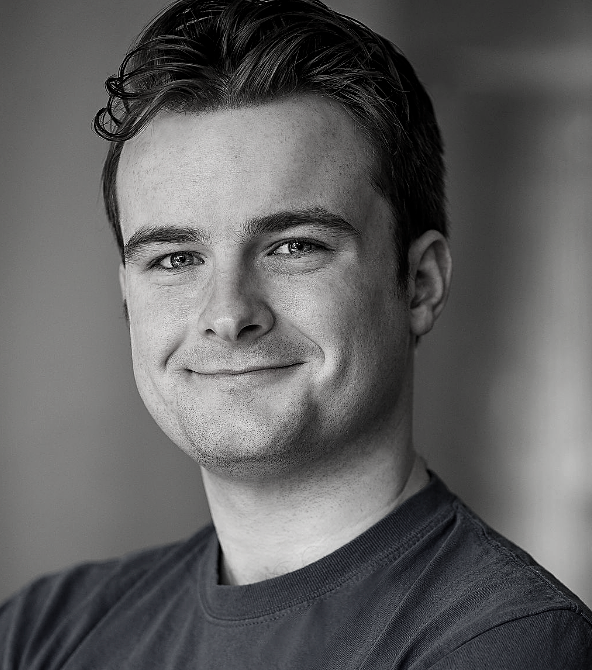
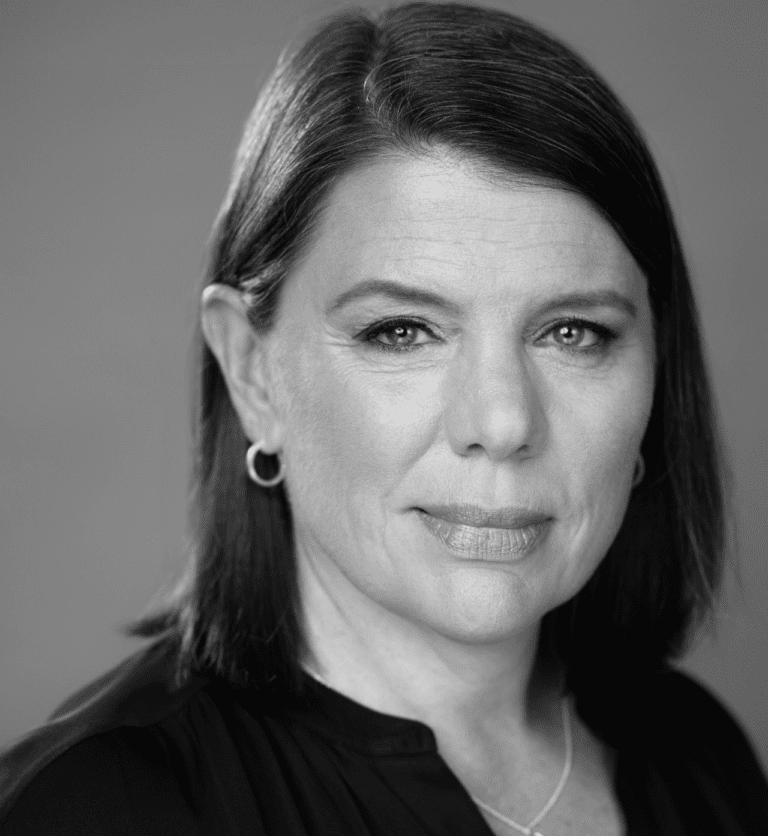








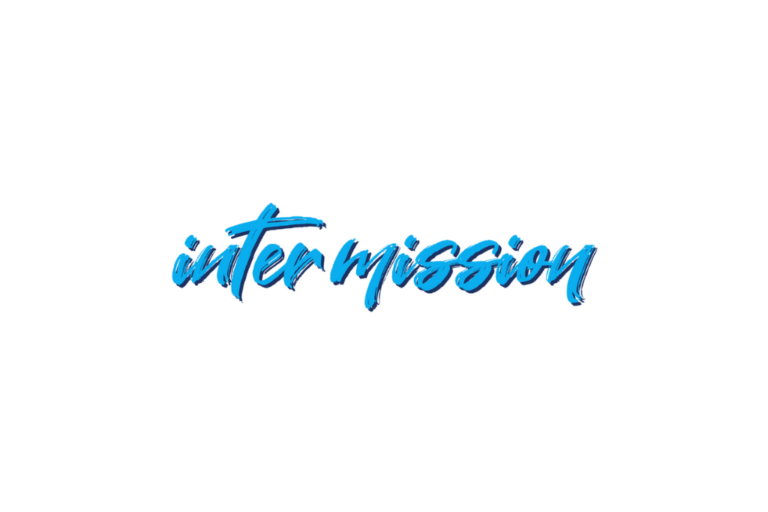
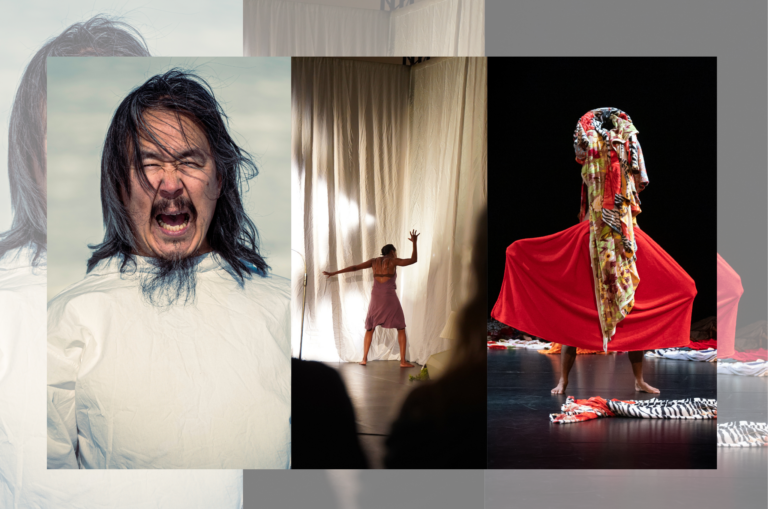
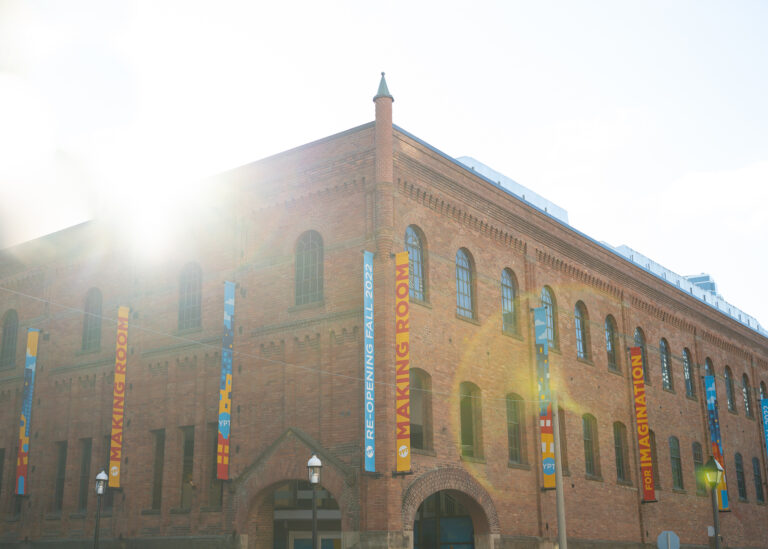
Something Rotten was amazing too.